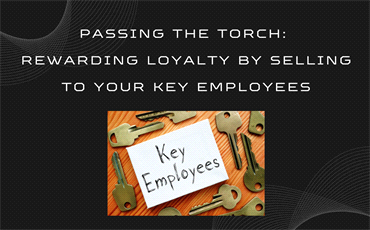Step By Step Guide To Forming A Business In Nevada
Starting a business in Nevada isn't hard once you know what forms you need and how to fill them out
Starting a business in Nevada isn't hard once you know what forms you need and how to fill them out.
If you're like most, the thought of starting your own business can be overwhelming. It's not just about having an idea; it's also about researching the legal requirements for setting up your company.
With the help of this guide, you'll learn everything from choosing a name to registering with government agencies. With this information, there won't be anything standing between you and success!
Step One: Create a Business Plan
Before you start with the business registration process, you should create a business plan. Having a business plan can assist you in preparing to get a license and avoid expensive refiling fees.
If you need help with this step, SCORE, a Small Business Administration resource partner, provides free business plan templates for both new and established businesses.
Your business plan can help you set your vision, mission, and goals for the business. Lenders often require one when applying for a business loan, too, so you'll be one step ahead in that process if you should need financing.
Step Two: Prepare Business Documents
The next thing you'll want to do is prepare the required legal documents needed for your LLC, partnership, or sole proprietorship.
Here is a list of common business documents needed:
- Articles of Organization
- Operating Agreement
- Statement of Information
- Minutes
Step Three: Choose Your Business Name/DBA
If you're going to use a name other than your legal name, you must file a Fictitious Firm Name Form (Doing Business As - DBA) with the County Clerk's office to identify the owner(s).
You'll want to file the DBA in the county that your business will operate in. If you plan to operate in more than one county, you may need to file a license in each. Check with each county to find out their licensing requirements.
You'll need an established legal business name to fill out your application for a business license.
Step Four: Pick a Business Structure
There are five main types of businesses you can form in Nevada, and each will have slightly different legal and tax implications. Let's go over each so that you can decide what's best for your business.
Corporation
A corporation is a separate legal entity from its owners. This means that if you have a corporation, it's not you who owns the business directly - your corporation is the owner on record for tax purposes and liability protection.
Incorporation involves several steps, including:
- Filing articles of incorporation
- Paying specific fees/taxes
- Appointing a registered agent
- Maintaining corporate records
- Complying with annual report requirements
Limited Liability Company
An LLC is a limited liability company that protects its members from being personally responsible for business debts on their credit reports.
The LLC is a popular type of business entity with many kinds of companies, including both small and large businesses. It's also popular because LLCs provide protection from liability and tax concerns.
Forming an LLC for your business is the easiest way to get started in Nevada. It provides the same protection as a corporation, but it's easier to set up, making it more cost-effective for smaller companies.
General Partnership
A general partnership is a form of an LLC that has two or more partners.
Typically, all partners share the responsibilities and liabilities of the business (unless otherwise expressly stated in the partnership agreement). One downside to this structure is that if one partner leaves, it can create an imbalance in the company.
Sole Proprietorship
A sole proprietorship is one of the more straightforward business types to set up with any state or local government. It typically doesn't require any paperwork filed with the Internal Revenue Service, though you may still need to file taxes for income earned.
The LLC offers limited liability protection for its members, but the sole proprietorship does not. Even if your business is sued or incurs debts, you can be held personally responsible - even with a DBA.
Also, since this option provides little to no protection against personal liabilities incurred by your business, it may be less attractive for some small businesses.
Nonprofit
A nonprofit business is a business that doesn't make a profit. Nonprofit organizations also often have tax advantages because of the specific work they do.
Nonprofits often rely on donations, grants, and other funding sources to operate. Nonprofits do not pay taxes. However, they may still need to file taxes for income earned.
Once you choose a business entity type, it's time to start the licensing process.
Note: After reading through the business types, if you're still unsure which is best for your situation, we suggest you seek legal advice.
Step Five: Register Your Business Online
Looking for an expert company to prepare your registration with a focus on Asset Protection, Tax Savings, Privacy, Estate Planning, and Wealth Preservation? Visit Executive Asset Solutions at http://myeasg.com/.
Ready to register your business online on your own? Here are the steps to follow when registering your business at the official Nevada business registration portal
- Choose your business entity type.
- Choose an industry for your business to determine the state, regulatory, and local government requirements.
- Enter your business location.
- List your employees, if any.
- Take care of tax requirements.
Everything is done online in the same portal, convenient!
Want to fill out the Nevada Business Registration offline? You can find the form here.
If you need to contact the Nevada Commercial Recordings Division, their information is listed below:
202 North Carson Street
Carson City, NV 89701-4201
(775) 684-5708
Step Six: Get Your EIN Number (Optional)
An Employer Identification Number (EIN) is a tax identification number used by U.S. citizens, residents, and certain domestic entities for federal tax matters.
If you are a sole proprietor, LLC member, or partner without employees, skip this step. However, if you have employees in Nevada or plan on hiring soon, you'll need an Employer Identification Number (EIN).
You can also use this number to open bank accounts and apply for business loans. To get started on the process of getting an EIN in Nevada, head over to the IRS website. It's quick, easy, and free!
Step Seven: Get a Retail Sales Permit (Optional)
You may need a resale permit, an exemption certificate, or could be subject to use tax. Check with the Nevada State Department of Taxation in Las Vegas to find out.
You can schedule an appointment or find all the forms you'll need on their website.
Step Eight: Get Other Special Permits (If required)
Some businesses, such as cosmetology and contractors, will need additional permits from city or county offices such as:
Check with the appropriate licensing agency to find out.
Have more questions? Check out the Nevada Secretary of State's Business License FAQ.
Recent articles for you
Larry Goldstein of First Choice Business Brokers
License: NV RE S.0188852
Permit: Business Broker Permit BUSB.0007059
Navigation Links
Want to receive new business listing alerts by email?
The World's Authority in Business Sales
© 2023 Larry Goldstein of First Choice Business Brokers | Each office is independently owned and operated. Privacy Policy






